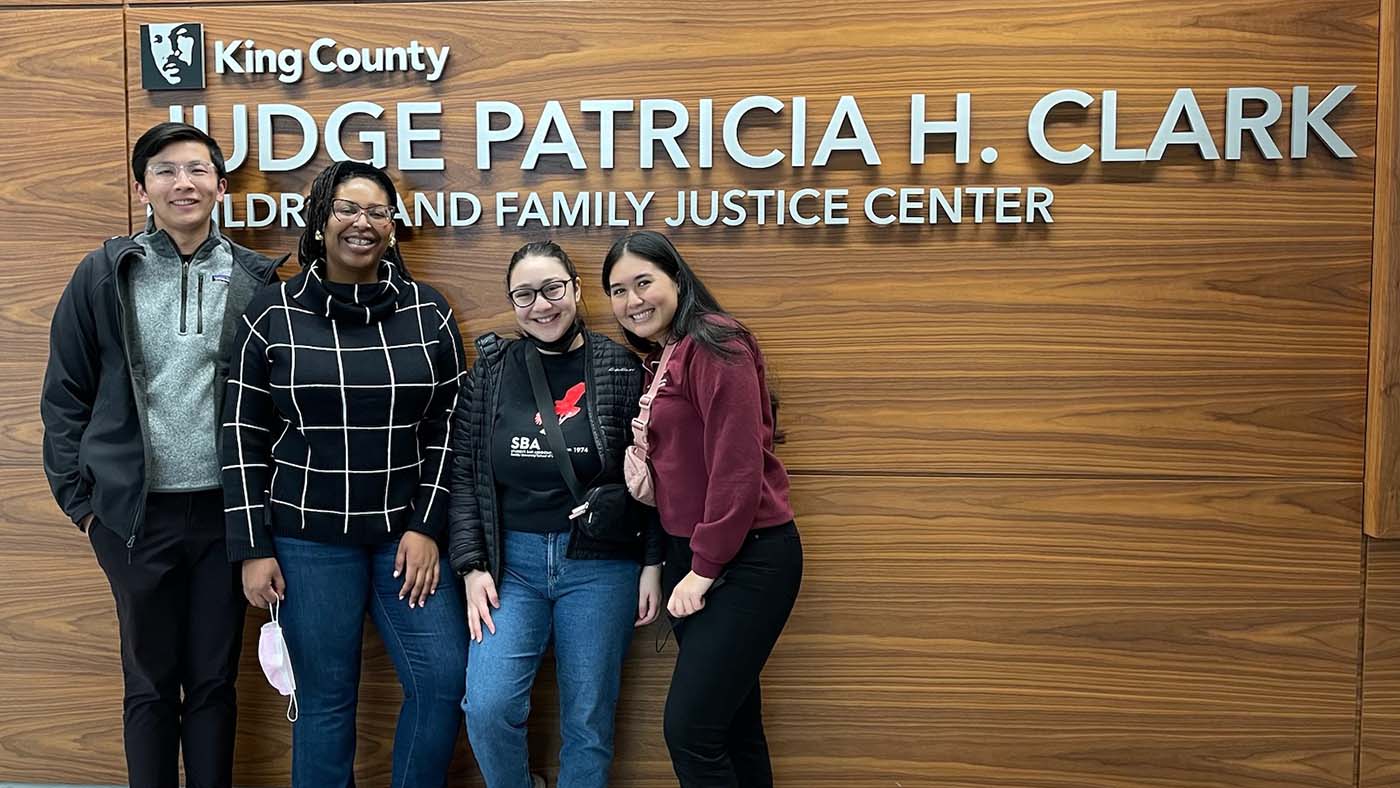Tiana Pereira ’24 and Zulen Pantoja-Ortega ’24 regularly work at the King County Juvenile Detention Center as part of the Seattle University School of Law Access to Justice Institute's (ATJI's) Youth Education & Advocacy Project (YEAP). ATJI hires, trains, and pays a YEAP intern who visits a youth detention facility once a month to present Know Your Rights workshops, often in collaboration with other organizations and guest speakers. Here, Pereira, who is a YEAP intern, and Pantoja-Ortega, who is a volunteer Spanish-language interpreter, share their experience working with incarcerated youth.
Having undergone an extensive background check and regular security when entering the facility, we walk through the halls of the Judge Patricia H. Clark Children and Family Justice Center, as we do every month, to present our monthly know-your-rights training. Though the walls are painted with bright colors and decorated with handmade art, we are aware that we are in a correctional facility, and we are here to provide support to youths who are detained.
Our trainings cover a range of topics essential for navigating the legal system and understanding youth rights. We’ve taught lessons on vacating and sealing records, understanding their rights when interacting with police, and other topics, and we aim to equip these young individuals with the tools they need to advocate for themselves. Each visit starts the same. We walk to the calendar and find out which hall we are in. As we walk into the hall we are assigned, we make our way to the back where the “classroom” is located. The youth range from as young as 12 years old to 17 years old.
It doesn’t come as a surprise to us how sharp and perceptive the youth are when it comes to grasping legal concepts. Despite their circumstances and their age, they display a remarkable level of intelligence and curiosity, quickly absorbing information and applying it to their own lives. Their enthusiasm and engagement serve as a testament to the importance of providing educational programming within youth detention centers.
Additionally, the class and racial disparities in youth representation within the system weigh heavily on our minds as we witness the potential of these young individuals stifled by systemic barriers. While we provide them with the knowledge and tools to advocate for themselves, we are not confined like they are. Our programming serves as a small yet significant step towards addressing these disparities by equipping youth with the knowledge and resources to navigate an inherently biased system.
In a world where the law can seem daunting and inaccessible, especially for marginalized youth, our programming serves as a beacon of empowerment and hope. By demystifying the legal system and providing practical guidance, we empower these young individuals to advocate for themselves and effect positive change in their lives and communities.
As our time in law school comes to a close, we are filled with a renewed sense of purpose and determination to continue advocating for the rights and well-being of youth within the juvenile justice system. In dispelling misconceptions about youth detention centers, we hope to inspire others to see beyond the stereotypes and recognize the humanity and potential of every young person. Through education, empowerment, and empathy, we can work toward creating a more equitable and just society for all.

